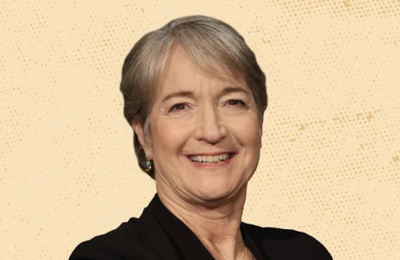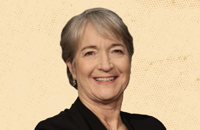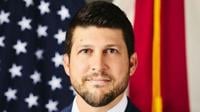
Lopez
HONOLULU - Hawaii Attorney General Anne Lopez defied the federal government when she recently filed a climate change lawsuit against Big Oil, which now says her case should be put on hold.
That's because President Donald Trump has gone to court to stop this type of litigation from spreading even further, arguing state officials and judges have no authority to interject themselves into the international energy market.
So on June 17, Chevron, Exxon and other defendants moved for a stay of Lopez's lawsuit in Hawaii state court, arguing a federal judge must first sort out the legal battle among Trump, Lopez and Michigan Attorney General Dana Nessel.
"Resolution of the federal action may fully dispose of the lawsuit before this Court and make it clear that the state law claims advanced here are preempted and precluded by the United States Constitution and federal law," the motion for a stay says.
"The federal action contends that a suit like the State's violates the federal Constitution and federal law in five different - and independent - ways - and if the federal courts agree with the United States on any one of these five grounds, the State's suit will be foreclosed and there will be nothing more for this Court to adjudicate."
Hawaii's Supreme Court is one of two high courts to let climate change litigation proceed, while six other state court judges have dismissed them at an early stage. The latest was Judge Stephen Corr of Bucks County, Pa., who tossed the county's case in May.
Plaintiff lawyers hired by government officials on contingency fees crafted their complaints to stay out of federal courts by making state-law claims like consumer deception and public nuisance.
The suits claim consumers would not have burned as many fossil fuels as they did had the oil industry been upfront about the harms emissions could cause. But those six state judges have refused to issue rulings that would essentially set new emissions standards.
Corr noted that Bucks County's complaint used the word "emissions" more than 100 times, while "deceptive" and "deception" were used 39 times combined.
"While not conclusive, the disparity informs the Court that the focus of the complaint is more on emissions than on deception," he wrote.
"The reason Bucks County avoids the issue of emissions is obvious, there is no question that emissions are the sole province of the federal government through the (Clean Air Act) and (Environmental Protection Agency) regulations that flow from it."
That's what President Trump said in a lawsuit against AGs Lopez and Nessel as they planned to join the dozens of other government officials who filed suit.
Trump issued an executive order forbidding their lawsuits. Then he went to federal court looking for injunctions to stop them.
"Congress delegated to EPA the authority to determine whether and how to regulate greenhouse gas emissions, thereby displacing federal common law claims and occupying the field of interstate air pollution regulation," the suits say.
A group of 14 attorneys general has filed a lawsuit of its own against the executive order in Seattle federal court. Big Oil says a stay on Hawaii's case while these issues are dealt with would promote judicial efficiency.
"There is no need to engage in costly and potentially superfluous litigation and waste of judicial resources when resolution of the federal action could well moot this entire litigation," the defendants say.
"(T)he state can hardly complain about any delay considering these types of climate-change cases have been filed against the energy industry (including many of the same defendants here) since 2017."
A South Carolina judge recently held a hearing on how Trump's executive order impacts Charleston's case. And five judges other than Corr, including two in Maryland and one in New York, have expressed concerns that though the cases make claims under consumer protection laws, they actually impact the global energy market.
Judge Videtta Brown, in Baltimore's case, said the litigation goes beyond the limits of Maryland law, or whatever states other cases are filed in.
"This Court holds that the U.S. Constitution's federal structure does not allow the application of state court claims like those presented in the instant cases," Judge Steven Platt wrote in tossing Annapolis' case.
"The States such as Plaintiffs here... can participate in the efforts to limit emissions collaboratively, but not in the form of litigation... If states and municipalities [or] even private parties are dissatisfied with the federal rulemaking or the outcome of cases, they may seek federal court review."








